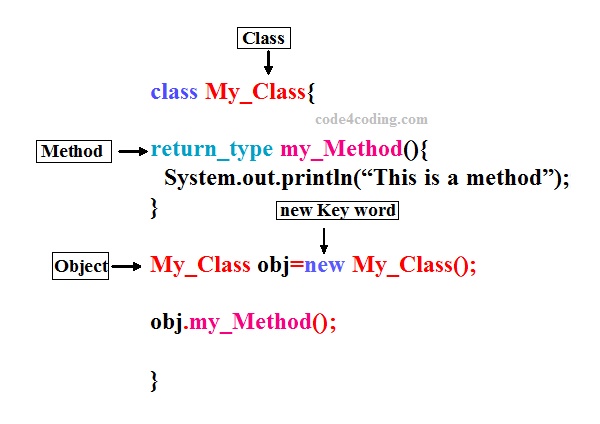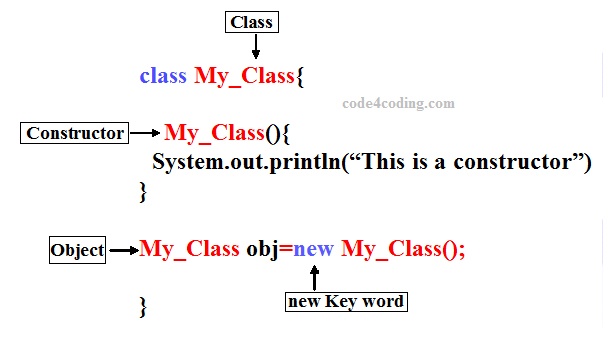Difference between Method and constructor in Java
Difference between Method and constructor in Java
In this tutorial, we will discuss the difference between Method and constructor in Java language. This is a very important concept in Java for students or programmers.
Now, we will get to know about the Java method
Method
- The method does not need the name similar to the class
- Java compiler does not provide any default or any type of methods in Java in any case
- The method is used to expose the behaviour of an object – to perform a special task or operation
- The method must have a return type and whereas the method may/may not return a value.
- The method has to be called explicitly with the class reference or object reference using dot(.) operator
- Java method can be a final, abstract, static, and synchronized.

Example
In this example, we create some methods including static method and normal method and call those methods
public class StuDetails{
static void demoMethod(){ //static method
System.out.println("This is a demo method");
}
static void method(){
System.out.println("This is a method");
}
void displayMethod(){
System.out.println("This is display method");
}
public static void main (String args[]){
demoMethod(); // calling static metod
StuDetails.method();// calling static metod using class reference
StuDetails s=new StuDetails();
s.displayMethod();// callingmetod using object reference
}
}
When the above code is compiled and executed, it produces the following results
This is a demo method This is a method This is a display method
Now, we will get to know about the Java constructor
Constructor
- The constructor must be of the same name of that class
- The constructor is used to initialize the state of an object – to place a value into data member of a class
- The constructor must not have any return type. whereas it never returns value
- The constructor will be automatically executed whenever the object is created
- Java constructor cannot be a final, abstract, static, and synchronized
- Default constructor provided by java compiler, when we do not have any constructor in Java program

Example
In this example, we create default and parameterized constructor and call those constructors using create an object
Program 1
public class EmployeeDet
{
int empNo;//global variable
String empName;
EmployeeDet()//default constructor
{
System.out.println("I am a default constructor");
}
EmployeeDet(int empNo, String name){//parameterized constructor
System.out.println("I am a parameterized constructor");
this.empNo=empNo;//assign local variable to global variable
empName=name;
System.out.println("\nEmployee name is: "+name);
System.out.println("Employee number is: "+empNo);
}
public static void main(String args[]){
EmployeeDet e=new EmployeeDet();
//default contructor called automatically when it is created
EmployeeDet e1=new EmployeeDet(121,"Ragulan");
//parameterized contructor called automatically when it is created
}
}
When the above code is compiled and executed, it produces the following results
I am a default constructor I am a parameterized constructor Employee name is: Ragulan Employee number is:121
Suggested for you
Method in Java